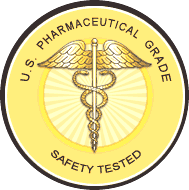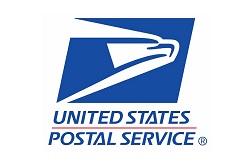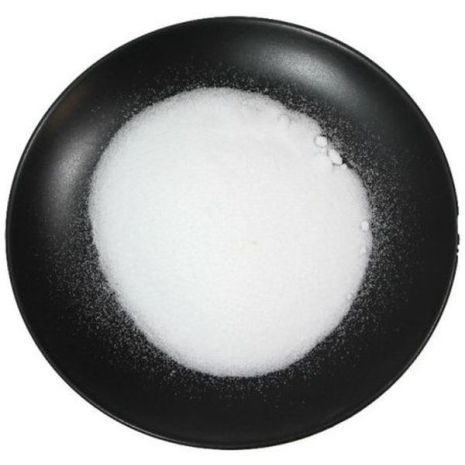All products are for external use only
Free shipping notes: 40 Lb Bag in Box
40 Lb Bag in box ships free in lower 48 continental states. Soapgoods Inc reserves the right to ship free shipping items via any carrier.

Need to find out where to get the Citric Acid that you need? Let us help, below you will find answers to all the most common, and some uncommon questions about Citric Acid. You should be able to determine which Citric acid you need after reviewing the following material. We currently Carry Citric Acid Anhydrous, FCC, USP Grade, Fine Granular. This is available in Bulk sizes, a full pallet is 2000 lbs, also available in 50 lb bags, and 1 lb bags. A full pallet is 40 x 50 lb bags.
What are you Using your Citric Acid For?
Citric Acid is commonly used in many foods as a preservative, due to its acidic pH many bacteria are unable to grow in an environment with Citric Acid present. It is also commonly used in soap and detergents, mainly due to its ability to soften water, also in many cosmetics, it is used as a preservative that helps to adjust the acid-base balance.
Citric acid is a natural acid derived from citrus fruits that has a wide range of uses in soapmaking. It is a water-soluble white crystalline powder that is commonly used as a pH adjuster in soap formulations. When added to soap, it can help to reduce the pH and make the soap more mild and gentle on the skin. Citric acid can also be used as a chelating agent to help remove minerals from hard water, which can affect the performance of soap.
In addition to its pH adjusting and chelating properties, citric acid can also be used as a natural preservative in soapmaking. It has antimicrobial properties that can help to extend the shelf life of soap and prevent the growth of bacteria and mold.
Citric acid can be added to soap formulations in small amounts, typically between 0.1% and 3%. It is important to use it in the correct proportion to avoid excess acidity, which can cause skin irritation or affect the soap's texture and lather.
Overall, citric acid is a versatile and useful ingredient in soapmaking that can help to improve the quality and performance of soap. It is a natural, safe, and effective alternative to synthetic chemicals and can be used in a variety of soap formulations, from liquid soap to bar soap and beyond.
Citric acid can be used to descale small appliances like kettles, as well as other common applications including cleaning coffee machines, irons, steamers, washing machines dishwashers, faucets, and showerheads.
When purchasing citric acid for use in your food we strongly suggest you obtain a food-grade citric acid, there are also other grades such as industrial grade which are not suitable for use in food. However they are less expensive, and if you are only using the citric acid for something like cleaning, an industrial-grade version may work for you.
 We stock the Highest Quality food grade citric acid, although it is food grade citric acid we do not suggest ingesting the product as we do not sell products for ingestion, all of our products are for external use only. Our citric acid is great for creating products in the personal care industry and for cosmetics/soap.
We stock the Highest Quality food grade citric acid, although it is food grade citric acid we do not suggest ingesting the product as we do not sell products for ingestion, all of our products are for external use only. Our citric acid is great for creating products in the personal care industry and for cosmetics/soap.
How Fast can I get it?
We Guarantee Your order ships out the same or next business day! This means in the South East you will have your order in 1 to 3 business days, in the North East normally 3 to 4 days and in the West normally 4 to 5 days. For full details on shipping and processing times please see our expected delivery times.
How does Your Citric Acid Ship?
Take Note: Our Citric Acid ships in strong plastic bags, the larger sizes (50 lbs size and multiples of 50 Lb) are shipped in strong paper / plastic industrial strength bags typically used for 50 lb chemicals.


If placing a pickup order you can collect your order the next business day or the same day by selecting "Rush" at checkout. Get more Pickup Information here
Which Grade do you Need?
Citric Acid comes in many grades including Anhydrous, Anhydrous means "without water". This is a completely dry version and recommended for most applications. There is also a Monohydrate grade which is normally used in pharmaceutical applications.
Here at Soapgoods, we carry the Anhydrous Grade of Citric Acid, this is what all of our customers have needed for their formulas.
There are as well various sizes of grains, including granular and fine among others, our grade if Fine Granular. We find this works the best in cosmetic applications.
Is Citric Acid Dangerous?
Citric Acid is a naturally occurring fruit acid, it is now a commercially produced product, however, it is still produced in a natural way (using fermentation). It is non-toxic and has low reactivity, it is fully biodegradable and can be disposed of with regular waste.
In general, it is considered safe and has obtained the FDA's seal of approval as a GRAS product (Generally Recognized as Safe). However, as with anything it should be used responsibly.
How Long will you Keep your Citric Acid?
Citric Acid has a long shelf life, potentially 5 years or longer when stored in ideal storage conditions (dark, dry, airtight). However, it can start to clump up only after a few months due to its hygroscopic nature (absorbs moisture from the air) which causes individual grains to stick to each other. This does reduce the efficacy, but may make the Citric Acid harder to work with, these clumps can normally be easily squashed back into grains.
How is Citric Acid Made?
Citric acid is was once extracted from Citrus fruits, however, it became quickly known that it was not efficient to produce it this way. Using citrus fruits to product Citric acid is too expensive, there is also not enough to meet the demand, more than a million tons of Citric Acid is needed each year. After much study, a new improved way of producing Citric Acid was developed, this normally involving the fermentation of carbohydrates from corn and molasses using Aspergillus niger or Candida sp.
This was a much more efficient way to product Citric Acid and is now generally the industry standard. Find out more about the science here Biological Production of Citric Acid
Uses of Citric Acid
Commonly used in cosmetics and personal care products. Helps to preserve cosmetics and personal care products by chelating metals. Can also be added to cosmetics to help adjust the acid/base balance. Commonly used in making bath fizzes! However, over 70% of Citric Acid production is used in the food industry.
Common Question: Can I use your Citric Acid to Make Bath Bombs?
Yes! Our Citric Acid is of the Anhydrous type, which means it is in a water free form and will react well when exposed to water (you will get a good fizz!!). Also, check out our bath bomb molds available in the soap molds section. We also have a great selection of bath bomb colors. Bath Bomb Red Bath Bomb Yellow Bath Bomb Orange
Is your Citric Acid Natural?
Citric acid is manufactured by the natural process of fermentation by using naturally derived carbohydrates. The strains used for the manufacturing are not genetically modified according to the directive 90/219/EC and as amended in directive 2001/18/EC. Citric acid undergoes several purification steps and is finally obtained in its highly pure nature-identical form.
The salts, mono- and trisodium citrate, tricalcium citrate, trimagnesium citrate, tripotassium citrate, and zinc citrate are prepared by neutralizing the above citric acid with the respective mineral source. These products undergo several purification steps and are finally obtained in their highly pure form.
Because there is no particular regulation in the United States that defines the requirements for a "natural" product, we advise companies to evaluate the natural status with their own regulatory and label experts.
Can I Use your Citric Acid as a Preservative?
Our Premium Grade Citric Acid makes an excellent natural preservative in cosmetic, soap and personal care applications. SoapGoods.com is not an FDA regulated distributor of foodstuff, the use of this product in any foodstuffs is at your own risk.
Quick Details
- Other Names: Citric Acid, Aciletten, Citretten, Citro, 2-Hydroxy-1,2,3-propanetricarboxylic acid, Anhydrous citric acid, Citric acid, anhydrous, Kyselina citronova, Kyselina 2-hydroxy-1,2,3-propantrikarbonova, Citraclean
- Grade: FCC
- CAS: 77-92-9
- Appearance: White single granules
- INCI Name: Citric Acid
- Solubility: In water, in Alcohol
- Natural or Synthetic: Manufacturered using natural means.
- Recommended Retest or Shelf Life: 3 to 5 years depending on storage conditions
- Storage: Store Citric Acid in a cool, dark dry environment, tightly Closed.
- Cautions: Not for Ingestion.
We have the Quality Citric Acid You Need, Shipped Right to Your Door
What Type of Citric Acid is This?
This is the Highest Quality of Citric Acid Available, Anhydrous, USP, FCC Grade . A Fine Granular Variety, the Tiny Crystals will quickly dissolve into your recipes and mixtures.
. A Fine Granular Variety, the Tiny Crystals will quickly dissolve into your recipes and mixtures.
Popular uses for Soap Goods Premium Citric Acid:
- Creating the Fizziest Bath Bombs ever
- Creating 1st Prize Science Projects
- Making Exfoliating Shampoos, Creams, and Lotions
- Cleaning the Bathroom and Kitchen
- Removing Grime from your Pool and Outdoor Furniture
- To Clean your Equipment and Machinery
How do I Know this is Good Citric Acid?
Our Premium Grade Citric Acid is manufactured in an FDA-registered facility and certified by the FDA as US Pharmacopeia grade and FCC (Food Chemicals Codex) Grade.
Take Note: This simply means that it is the Highest Quality of Citric Acid Available.
You are also protected by our No-Nonsense 100% Satisfaction Guarantee. If for any reason you are unhappy with your Citric Acid. send it back for a full refund, see our policies page for full details.
Common Question Alert: Can I use your Citric Acid to Make Bath Bombs?
Yes! Our Citric Acid is of the Anhydrous type, which means it is in a water free form and will react well when exposed to water (you will get a good fizz!!), also check out our bath bomb molds available in the soap molds section.
Is your Citric Acid Natural?
Citric acid is manufactured by the natural process of fermentation by using naturally derived carbohydrates. The strains used for the manufacturing are not genetically modified according to the directive 90/219/EC and as amended in directive 2001/18/EC. Citric acid undergoes several purification steps and is finally obtained in its highly pure nature-identical form.
The salts, mono- and trisodium citrate, tricalcium citrate, trimagnesium citrate, tripotassium citrate, and zinc citrate are prepared by neutralizing the above citric acid with the respective mineral source. These products undergo several purification steps and are finally obtained in their highly pure form.
Because there is no particular regulation in the United States that defines the requirements for a "natural" product, we advise companies to evaluate the natural status with their own regulatory and label experts. See more from the FDA here
Can I use your Citric Acid as a Preservative?
Our Premium Grade Citric Acid makes an excellent natural preservative. SoapGoods.com is not an FDA regulated distributor of foodstuffs. The use of this product in any foodstuffs is at your own risk.
Download the MSDS, Citric Acid, Material Safety Data Sheet
Customer reviews
Recommendation for purchase











